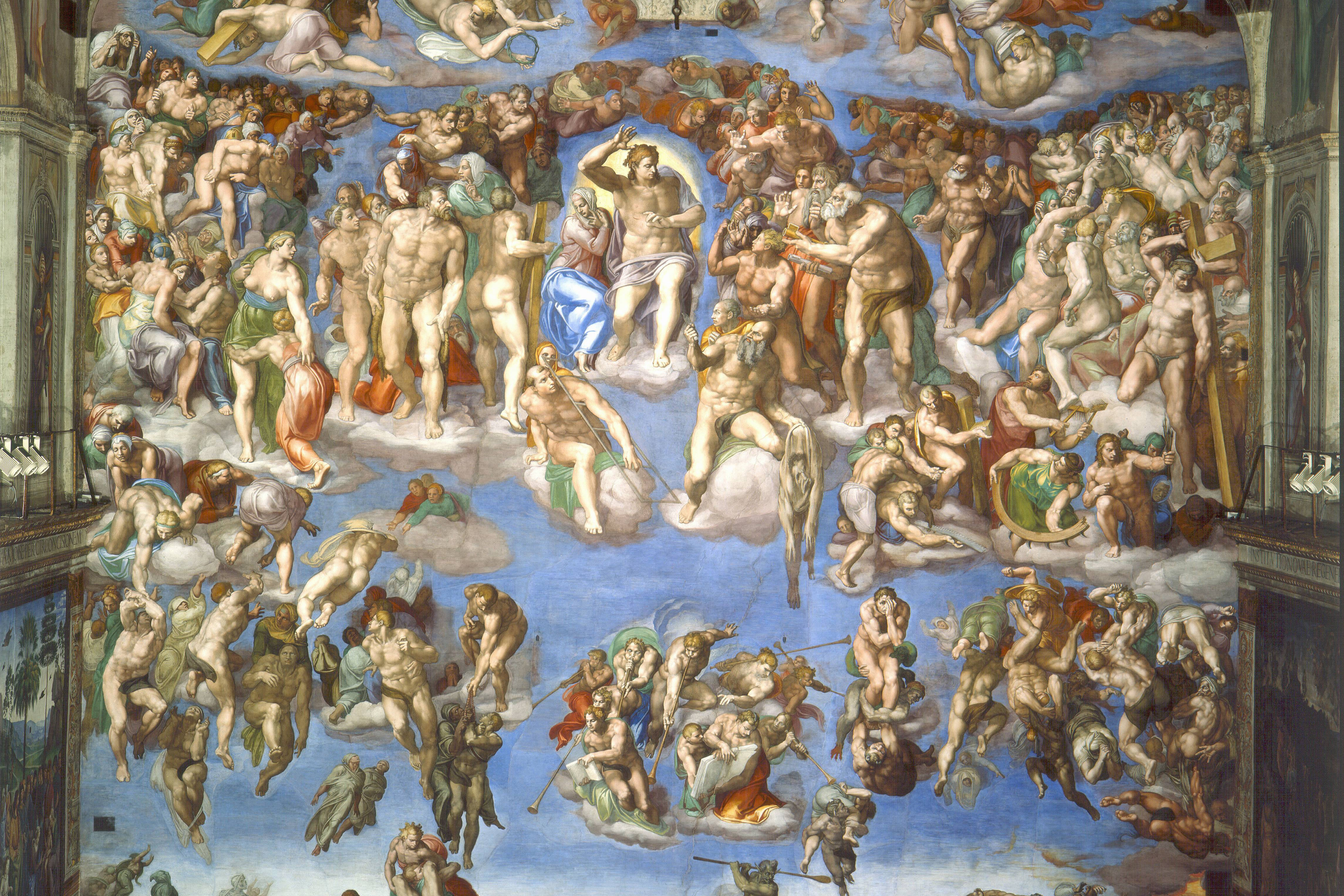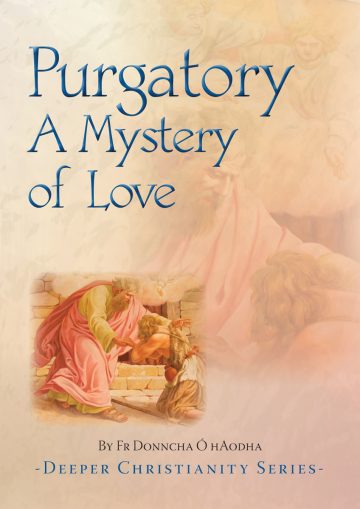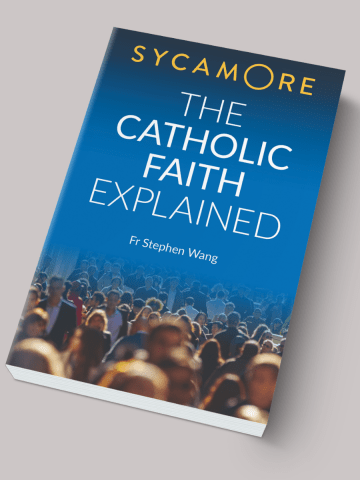If you go to the British Museum in London you can visit the Egyptian Galleries and see the famous mummies. The smaller cabinets contain some of the other objects that were found in the Egyptian graves.
There are some beautiful model boats, with wooden figures rowing their long oars. They symbolise the passage of the souls of the dead to the afterlife, represented as a boat journey across the River Nile. It’s very clear that the Egyptians believed in some kind of life after death.
There seems to be a kind of instinct in the human heart to look beyond our earthly life, to believe that death is not the final end. There is a longing for eternal life. From the beginning of human history, we have had the unusual habit of burying our dead, as if to give them special honour. And also to put “grave goods” next to the bodies, as if they would help the deceased reach their spiritual destination.
In the Christian understanding, human beings are a unity of body and soul, of matter and spirit. We are created in the image and likeness of God, and we are made for eternal life with him. Deep down we sense that our true homeland is in heaven.
When we die, our bodies will lie corrupt, but our souls will live on and come into the presence of God. The truth of our lives will be laid before us, and there will be a moment of judgement.
On its own, this can be a terrifying thought. But God is full of mercy and compassion, and Jesus Christ has opened the gate of heaven for us through his death and Resurrection.
Christians believe that those who are close to Jesus, through a living faith, will be welcomed into heaven. Some of them, the saints, will go straight to heaven. But some of them will need to go through a spiritual purification before they enter heaven; we call this the experience of purgatory.
What about those who have not come to know Jesus? Christians believe that Jesus reaches out to those who do not know him, even in ways we cannot understand. He longs for all people to be saved, and he would never condemn someone who had had no chance to know him.
But we also know that it’s possible to turn away from his love and mercy, and even to reject the salvation he offers. This is the tragedy of hell, to cut yourself off for ever from the merciful love of God.
At the end of time, at the Second Coming, Jesus Christ will come back to earth in glory, and bring everything to its fulfilment. There will be a Final Judgement, a vindication of God’s plans, a fulfilment of all his promises. The souls of the dead will be united with their resurrected bodies. Those who are saved will share in the glory of the Resurrection. They will live in the presence of God for all eternity.
Probably the most famous painting of the Last Judgement is the one by Michelangelo above the altar in the Sistine Chapel in the Vatican. But in the churches of the Middle Ages it was more common to have an image of the Final Judgement on the back wall, above the main door, so it was the last thing you saw as you left the church. It reminded you of the seriousness of death, but also of the hope of heaven.
That’s the reason for this Christian teaching about death. Not to frighten us, but to make us wake up and take things a bit more seriously. We know that death will come to us all, and that we will have to give an account of all that we have done. This gives us a sense of purpose, and a motivation to use the time well. We should have a healthy “FOMO” – a healthy “fear of missing out” on heaven.
This knowledge makes us want to prepare for our own death. If anything is unresolved in my life, I can try to put it right. If I have any serious sins on my conscience, I can seek God’s forgiveness in confession. If I am very sick or near to death, I can be anointed in the sacrament of the sick.
Above all, this teaching gives us hope. We know that death is not the end. We know that Christ has already triumphed, and that he is coming back, at some point in the future. He has not forgotten us. The hope of heaven helps us to live through the sufferings of this life, and gives us a reason to stay close to Christ in faith and love.
Questions for reflection
If someone invented a pill that meant you would never die, would you take it?
How do you think we deal with death in our society today?
What customs or traditions do you associate with dying and death in your culture?
What difference does it make to know that we face God’s judgment after death? What difference does it make to know that we have the hope of eternal life?
 This blog is an extract from SYCAMORE: The Catholic Faith Explained. In SYCAMORE, you will find answers to the most common questions about life and faith, whether you want to deepen the faith you already have or are exploring the faith for the first time.
This blog is an extract from SYCAMORE: The Catholic Faith Explained. In SYCAMORE, you will find answers to the most common questions about life and faith, whether you want to deepen the faith you already have or are exploring the faith for the first time.
To find more answers to the big questions in life, get your copy of SYCAMORE: The Catholic Faith Explained.




